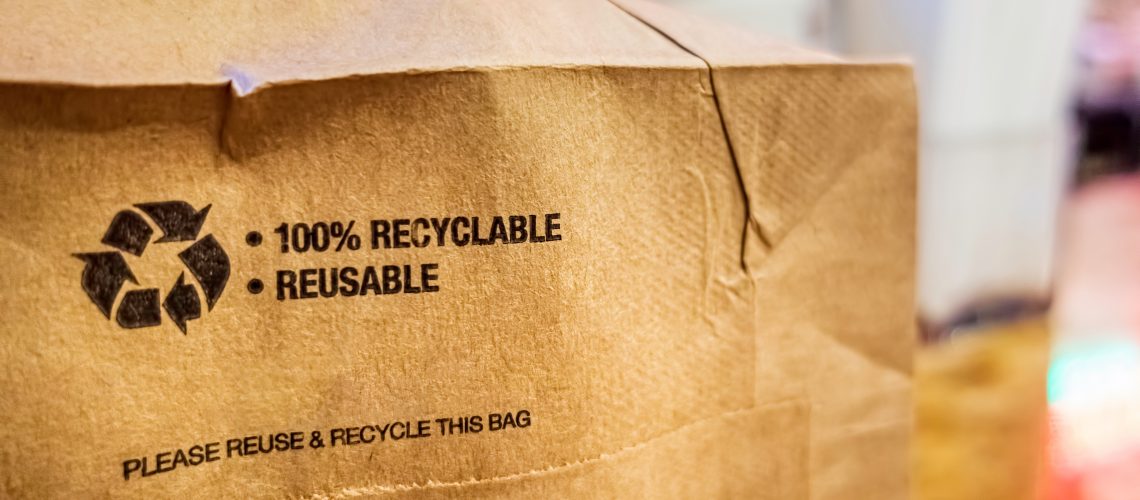As we move forward through 2023 and beyond, the business case for sustainably designed packaging has never been stronger.
Consumers are increasingly demanding packaging that can reduce their environmental impact when purchasing goods, and one of the key legislative changes on the horizon in this regard is the Extended Producer Responsibility(EPR) scheme. However, it has recently been announced that it is to be delayed until 2024 while details and scope are still being established.
Unfortunately, rather than lessening the pressure, the delay only underscores the urgency for businesses to treat packaging circularity as a top priority.
EPR at a glance
Responding to global calls for accountability in waste, the EPR scheme is designed to make manufacturers and producers of packaging materials across the UK more accountable for the entire lifecycle of their products. This includes its full end-to-end journey from production to disposal and will require large amounts of data to be collected, maintained and audited.
In short, the scheme shifts the burden of managing packaging waste from local governments and consumers to the companies that manufacture the packaging and bring it to market. The regulations will apply to all UK organisations, including individual businesses, subsidiaries and groups, that import or supply packaging, have an annual turnover exceeding £1m, and were responsible for more than 25 tonnes of packaging in 2022.
Whether the scheme fairly addresses today’s waste challenges is a hotly debated topic, but in terms of packaging, there are several key changes that brands must be aware of. Under Extended Producer Responsibility, packaging producers become legally responsible for the collection, recycling, and safe disposal of the packaging waste generated by their products. For brand owners, this dramatically accelerates the need for packaging designed for circularity.
To fulfil their obligations, producers may be required to pay fees or contribute to a fund dedicated to managing and recycling packaging waste, the details of which are yet to be fully determined. These added costs are designed to encourage the use of readily recyclable materials, such as monopolymers.
As the scheme comes into effect, producers will be encouraged to collaborate with local waste management authorities to establish effective collection and recycling systems, making it easier for consumers to recycle their packaging materials. While yet to be confirmed, it is expected that non-compliance to EPR obligations may result in penalties.
The delay of the EPR rollout does not mean businesses can afford to take their foot off the sustainability pedal, however. Until its full launch, businesses are still asked to collect necessary data and metrics, and there remains numerous important reasons to maintain momentum in switching to more environmentally sensitive packaging designs.
Aligning sustainability with commercial business goals
We know that today’s consumer is switched on, engaged, and more aware of environmental issues. As a result, they demand greater transparency and authenticity from the brands they purchase from. Superficial sustainability efforts and buzzwords are no longer sufficient; a comprehensive sustainability programme is a core driver of business success.
As the clock ticks towards the Net Zero target of 2050, with many businesses committing to much sooner 2030 targets, sustainability must be incorporated into fundamental brand strategy and long-term direction.
With this in mind, the delay of the EPR scheme should not deter companies from prioritising sustainable packaging practices. Instead, it should encourage them to view sustainability as an integral part of their business model, earning the trust and loyalty of ethics-driven consumers.
A push to ‘close the loop’ on plastics
While often villainised in modern media discourse, plastics have more than proven their worth in reducing food waste. Awareness surrounding the life cycle of plastics has grown among consumers, leading to a demand for investment in recycling infrastructure, which still tends to be fractured and inconsistent from one location to another.
While plastic is a valuable substrate that plays a vital role in product protection and preservation, when it cannot be effectively recycled or recovered, it can pose a significant environmental challenge. Consumers are increasingly vocal about the need for more recycling programmes and a move towards a circular plastic economy.
The packaging industry, including companies like Eco Flexibles, advocates for substantial investment in recycling infrastructure to ensure that plastic waste is handled and minimised uniformly and consistently. By supporting a closed-loop plastic economy, we can work towards reducing plastic waste in landfills and the environment and promote a sustainable packaging ecosystem.
The Eco Flexibles approach
One of the most central ways that brands can boost their packaging circularity is by switching from complex multi-layer plastic flexible packaging to recyclable mono-polymer designs.
Traditional flexible packaging is comprised of multiple layers of materials, often including different polymers, foils and adhesives, that are impossible to separate therefore hindering the product’s ability to be recycled with any commercial value.
By contrast, monopolymers consist of a single polymer in varying degrees of density to offer the functionality required for the pack but ensure optimal recyclability with no need to separate the layers. Thanks to advancements in substrate technology and packaging design, monopolymers now offer comparable characteristics and performance to mixed material solutions. This principle is the core of Eco Flexibles and its service to brands around the world.
A business comprising of experienced print and packaging professionals, Eco Flexibles helps brand owners to transition incumbent mixed plastic flexible packaging to high-quality recyclable monopolymer packs, handling all aspects of the process from design to delivery. The business also supports its customers to develop new designs from the ground up for new product lines. By embracing monopolymers and working with businesses like Eco Flexibles, brands can further close the plastic loop and extend the life cycle of their packaging through repeated recycling.
Offering flexibility, Eco Flexibles has a selection of ‘off the shelf’ designs as a plug-in-and-play solution or can develop entirely bespoke designs for a given product range.
The postponement of the EPR scheme to 2024 does not diminish the urgency for businesses to prioritise packaging sustainability. As the sustainable packaging sector continues to innovate, brands have the opportunity to align their sustainability goals with business objectives.
Eco Flexibles stands as a key partner in this journey, assisting leading brands in converting existing packaging designs into sustainable alternatives that resonate with the modern consumer. From concept to completion, Eco Flexibles handles the heavy lifting in sustainable packaging transition, offering testing, accreditation, and support throughout the process.
It’s important that brands don’t take their eye off the ball because EPR has been delayed; by treating circularity as a priority now, businesses can secure their place as responsible industry leaders, benefit from enhanced brand reputation, and contribute to a cleaner, ‘greener’ world as regulation and markets evolve.
Get in touch with our team at Eco Flexibles today to discover how we can help your business meet its sustainability goals.


